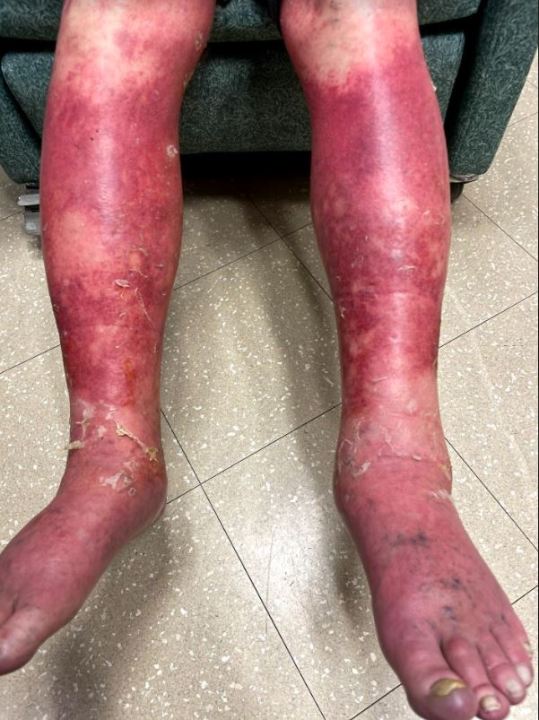A 74-year-old American man, Richard Terrell, has suffered an adverse reaction to the COVID-19 vaccine produced by pharmaceutical giants, Johnson & Johnson.
Terrell, of Goochland, Virginia, told local TV station WRIC that he took the vaccine on March 6 but began to experience discomfort and a severe rash four days after.
“I began to feel a little discomfort in my armpit and then a few days later I began to get an itchy rash, and then after that I began to swell and my skin turned red,” he said, adding that the rash soon covered his entire body.
Terrell added, “It all just happened so fast. My skin peeled off.
“It was stinging, burning and itching. Whenever I bent my arms or legs, like the inside of my knee, it was very painful where the skin was swollen and was rubbing against itself.”

The septuagenarian said he saw a dermatologist who advised him to go to the emergency room.
Read Also: HP Launches New Laptops Made From Recycled Aluminium
He said he spent five days in the hospital under the watchful eyes of medical personnel.
“We ruled out all the viral infections, we ruled out COVID-19 itself, we made sure that his kidneys and liver was okay, and finally we came to the conclusion that it was the vaccine that he had received that was the cause,” Dr Fnu Nutan, one of the doctors that attended to Terrell, said.
The doctor said that the condition could be life-threatening if left untreated.
“Skin is the largest organ in the body, and when it gets inflamed like his was, you can lose a lot of fluids and electrolytes,” she said.
Dr Nutan and her colleagues believe Terrell’s reaction has something to do with his genetic make-up and the vaccine type.
She explained that while Pfizer and Moderna vaccines are mRNA’s, Johnson & Johnson is a vector viral.
Notwithstanding, she said, such adverse reactions are extremely rare.
She encouraged people to get vaccinated against COVID-19.
“If you look at the risk for adverse reaction for the vaccine it’s really, really low.
“We haven’t seen a great concern at all. I am a big proponent of the vaccine,” Dr Nutan stressed.

